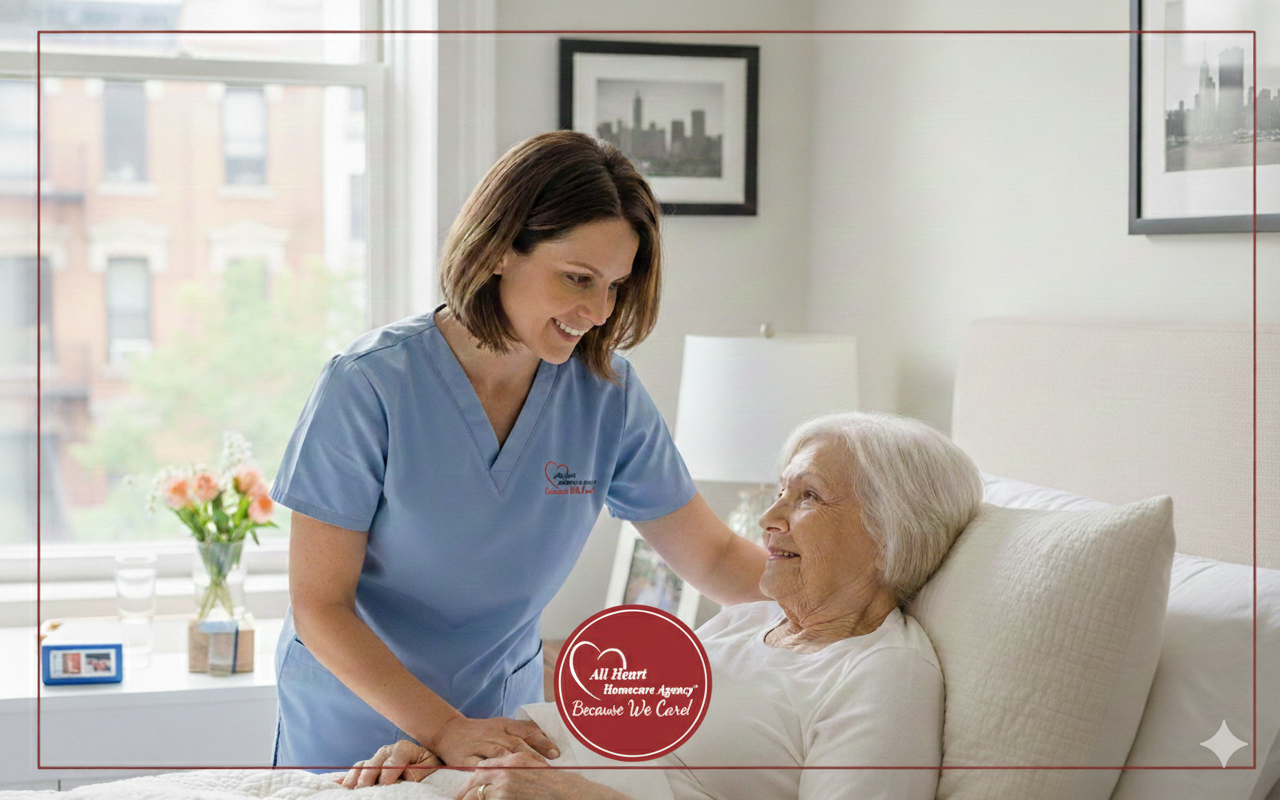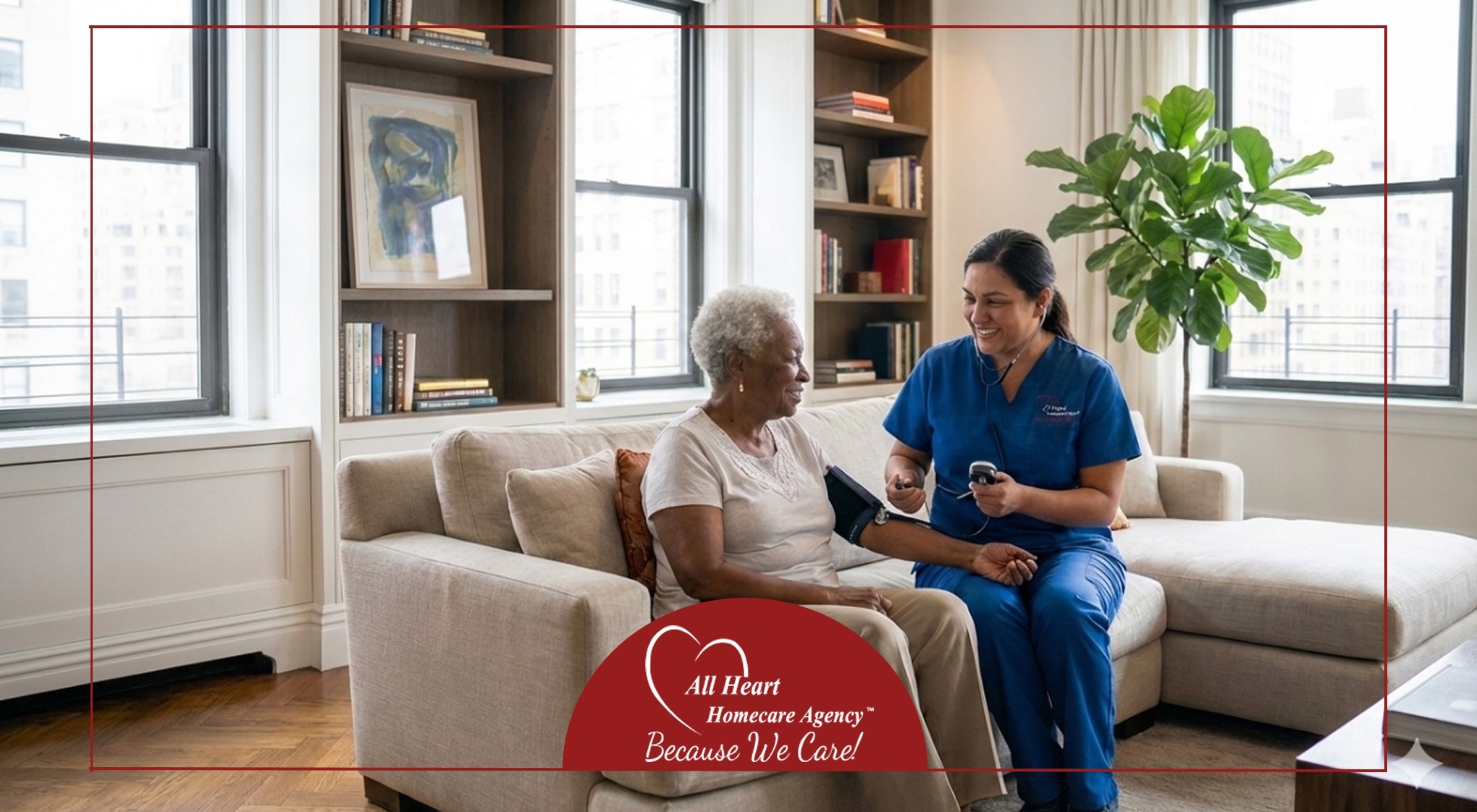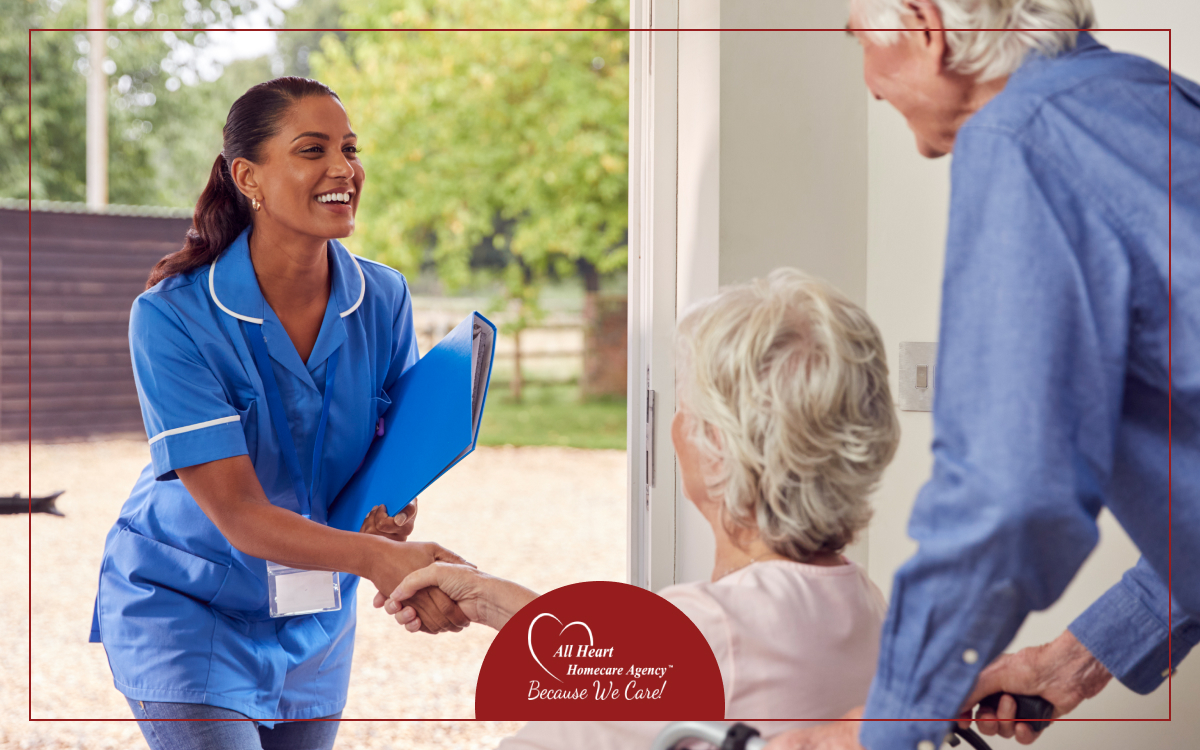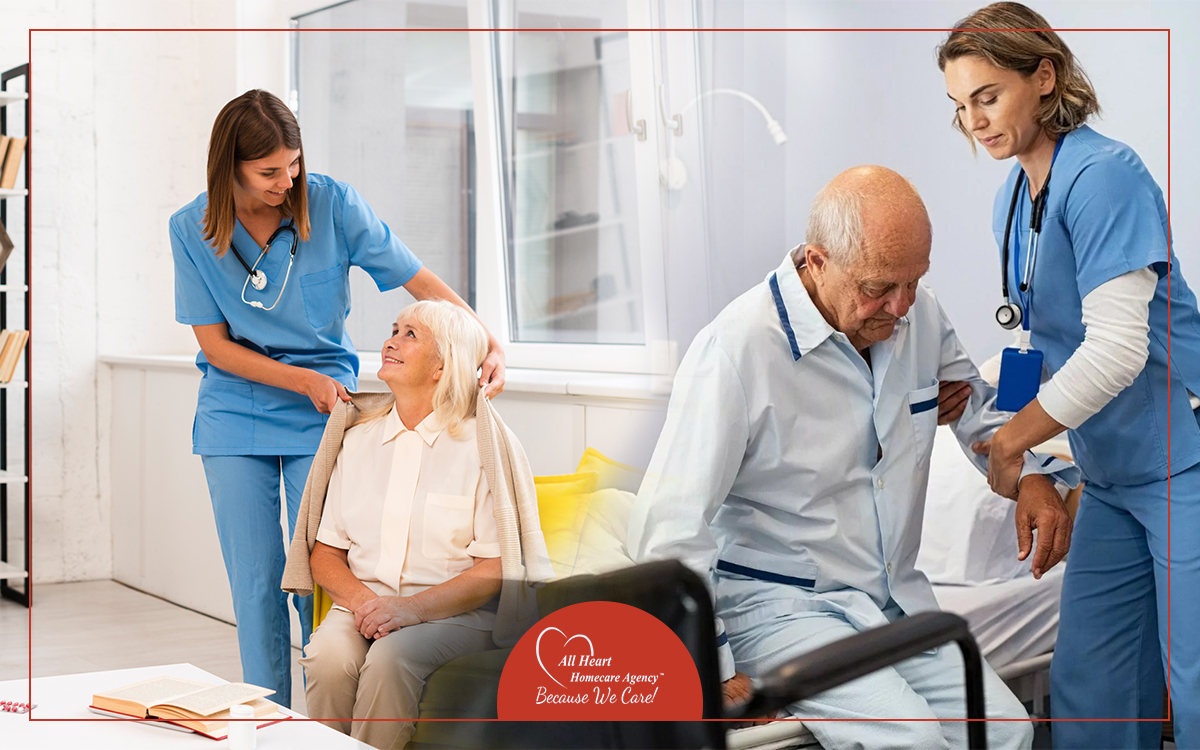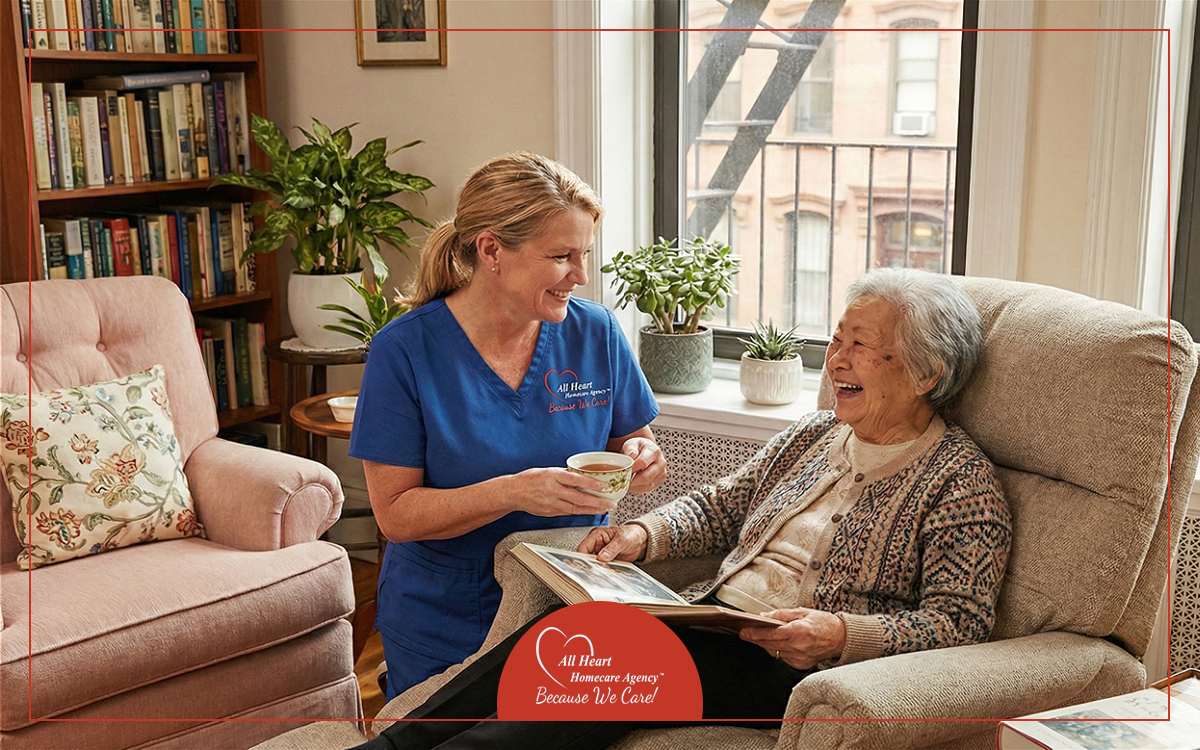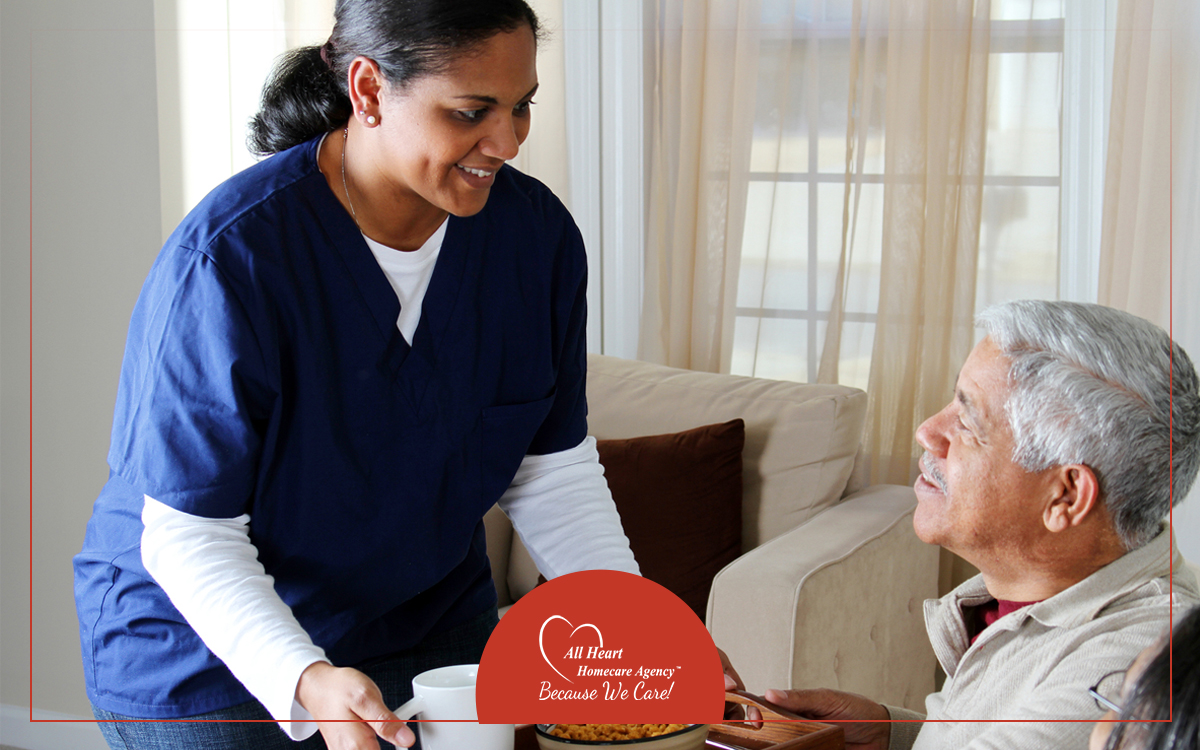Caring for Holocaust survivors requires more than standard home care services. These remarkable individuals carry unique trauma histories that demand specialized, compassionate approaches to ensure their dignity, safety, and well-being. At All Heart Homecare, we understand that providing Holocaust survivor home care means honoring their extraordinary resilience while addressing the complex needs that stem from their experiences.
This comprehensive guide will help families navigate the specialized care requirements for Holocaust survivors, offering practical insights and compassionate strategies that honor their journey while ensuring the highest quality of home care for Holocaust survivors.
Understanding the Unique Needs of Holocaust Survivors
Historical Trauma and Its Lasting Effects
Holocaust survivors carry the weight of unimaginable experiences that continue to impact their daily lives, even decades later. The trauma they endured during one of history’s darkest periods manifests in various ways as they age, requiring caregivers to approach their care with extraordinary sensitivity and understanding.
Physical health impacts from wartime experiences often include:
- Malnutrition-related bone density issues
- Cardiovascular problems linked to extreme stress
- Digestive disorders from prolonged food deprivation
- Chronic pain conditions related to physical trauma
Psychological effects of persecution and survival create lasting impacts that influence how survivors interact with the world around them. Many survivors experience hypervigilance, difficulty trusting authority figures, and heightened anxiety in medical settings. These responses aren’t signs of difficult behavior – they’re natural survival mechanisms that helped them endure the unthinkable.
Common Health Challenges in Holocaust Survivors
Research shows that Holocaust survivors face unique health challenges that require specialized attention in home care settings:
| Health Challenge | Prevalence | Care Considerations |
| PTSD and Anxiety | 45-65% higher than general population | Trauma-informed approaches essential |
| Sleep Disorders | 70% experience nightmares or insomnia | Create calming bedtime routines |
| Depression | 40% higher rates | Integrated mental health support |
| Cardiovascular Disease | 25% higher risk | Regular monitoring, stress management |
| Cognitive Changes | Often trauma-related, not just aging | Distinguish between trauma and dementia |
Building Trust and Relationships
Trust doesn’t come easily for Holocaust survivors. Many experienced betrayal by neighbors, officials, and even fellow prisoners. This history means that building rapport requires patience, consistency, and deep respect for their autonomy.
We’ve learned that successful Holocaust survivor home care begins with understanding that every interaction is an opportunity to demonstrate safety and reliability. Our caregivers receive extensive training to recognize the signs of distress and respond with gentleness and understanding.
Trauma-Informed Care Approaches for Holocaust Survivors
Core Principles That Guide Our Care
Safety forms the foundation of every interaction. This means creating predictable routines, explaining procedures before beginning, and always asking permission before touching or moving personal items. For survivors, unexpected changes or surprises can trigger intense anxiety.
Trustworthiness and transparency require us to be completely honest about what we’re doing and why. We never make promises we can’t keep, and we follow through on every commitment, no matter how small.
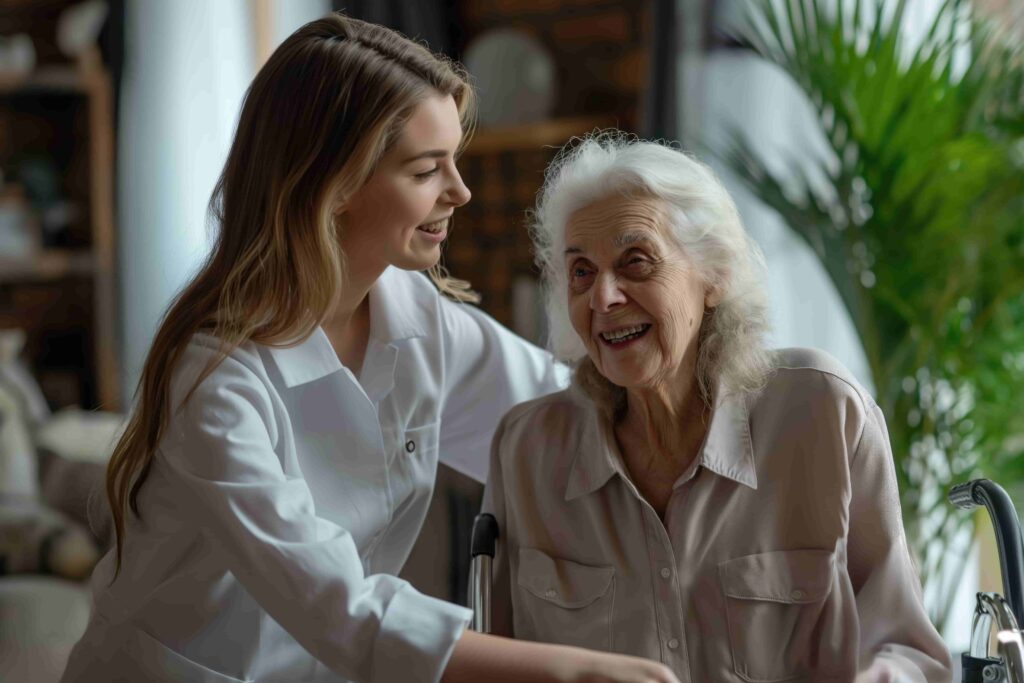
Cultural humility and historical awareness mean our caregivers understand the historical context of survivors’ experiences and respect their cultural and religious practices. This might include understanding kosher dietary requirements or respecting Sabbath observances.
Implementing Trauma-Informed Practices
Creating predictable routines and environments helps survivors feel secure. We work with families to establish consistent schedules and maintain familiar surroundings whenever possible. This predictability helps reduce anxiety and creates a sense of safety.
Avoiding triggers and retraumatization requires careful attention to potential triggers such as:
- Uniforms that might resemble authority figures
- Unexpected knocking or loud noises
- Medical procedures without proper explanation
- Discussions of current events involving persecution
Respecting survivor autonomy and choice means always offering options when possible and honoring their decisions about their care. This empowerment helps restore a sense of control that was taken from them during their traumatic experiences.
Communication Strategies That Work
Effective communication with Holocaust survivors requires patience, gentleness, and cultural sensitivity. Our caregivers learn to:
- Use gentle, non-threatening approaches by speaking softly and moving slowly
- Recognize when survivors may shut down and know how to respond with reassurance
- Practice patience and consistency in all interactions
Specialized Services in Home Care for Holocaust Survivors
Mental Health Support Services
Mental health support is crucial for Holocaust survivors, yet many are reluctant to seek help due to stigma or past experiences. Our approach includes:
- Group therapy and peer support programs that connect survivors with others who share similar experiences
- Crisis intervention protocols specifically designed for trauma survivors
- Integration of mental health with physical care to address the whole person
Daily Living Assistance with Dignity
Personal care for Holocaust survivors requires exceptional sensitivity. Our caregivers understand that:
- Personal care with dignity and respect means explaining each step and obtaining permission
- Meal preparation considers dietary restrictions, cultural preferences, and potential food-related trauma
- Household management respects personal belongings and maintains familiar arrangements
- Transportation services provide safe, comfortable access to medical appointments and community activities
Cultural and Spiritual Support
We recognize the importance of cultural and spiritual connections in healing and well-being:
| Support Type | Services Provided | Benefits |
| Cultural Connection | Link with community organizations | Maintains cultural identity |
| Religious Support | Facilitate religious observances | Provides spiritual comfort |
| Legacy Activities | Holocaust testimony programs | Creates meaning and purpose |
| Intergenerational Programs | Connect with younger generations | Shares wisdom and experiences |
Caregiver Training and Education
Essential Training Components
Our caregivers receive specialized training that goes far beyond standard home care preparation:
Holocaust history and its impact help caregivers understand the context of survivors’ experiences without requiring survivors to constantly explain their trauma. This education includes understanding the various camps, ghettos, and hiding experiences, as well as the liberation process and its challenges.
Trauma-informed care principles and practices teach caregivers to recognize trauma responses and respond appropriately. This includes understanding hypervigilance, emotional numbing, and other survival mechanisms that continue to protect survivors.
Cultural competency and sensitivity training addresses the diverse backgrounds of Holocaust survivors, including different countries of origin, languages, and cultural practices that were disrupted but often maintained in some form.
Communication Skills Development
Effective communication requires specialized skills:
- Active listening techniques that validate experiences without requiring detailed trauma disclosure
- De-escalation strategies for moments of anxiety or distress
- Working with survivors who have trust issues through consistent, gentle approaches
- Understanding family dynamics that may include intergenerational trauma effects
Supporting Our Caregivers
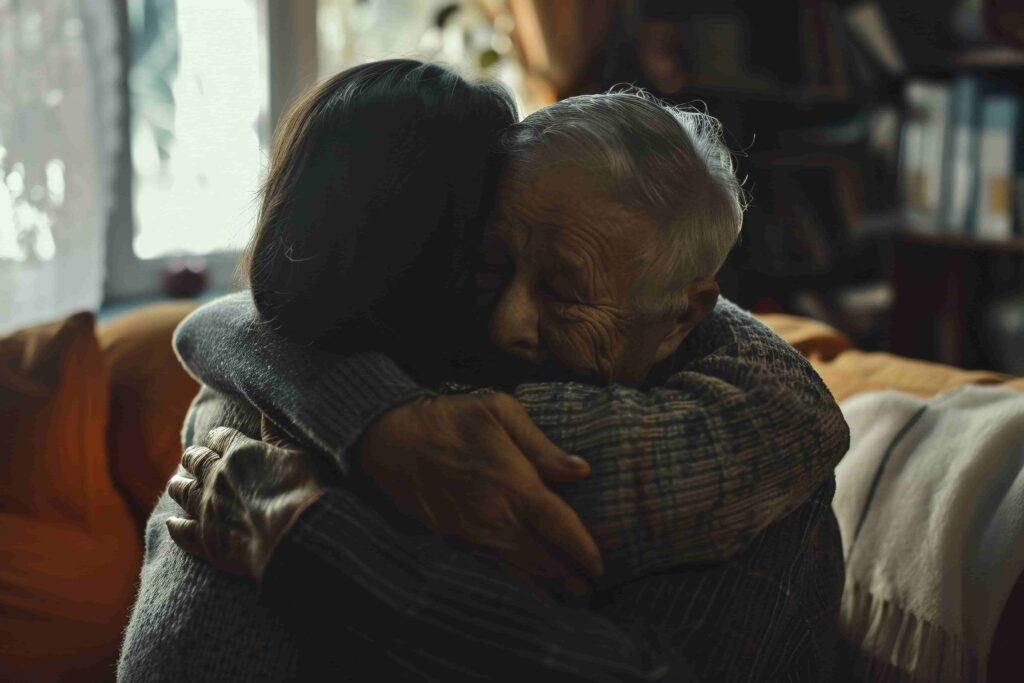
We understand that providing home care for Holocaust survivors can be emotionally challenging for caregivers. That’s why we provide:
- Secondary trauma support through counseling and debriefing sessions
- Stress management resources and burnout prevention strategies
- Resilience-building programs that help caregivers maintain emotional health
Family Support and Resources
Supporting Adult Children and Families
Caring for a Holocaust survivor parent or relative brings unique challenges that we help families navigate:
Understanding intergenerational trauma effects helps family members recognize how their parents’ experiences may have shaped family dynamics and their own responses to stress and authority.
Navigating caregiving decisions while respecting survivor autonomy requires a delicate balance. We help families communicate effectively and make decisions that honor their loved one’s wishes while ensuring safety.
Educational Resources and Community Connections
We connect families with valuable resources:
- Educational materials about survivor psychology and care needs
- Local Holocaust survivor organizations that provide community and support
- Support groups for family members and caregivers
- Cultural programs that honor heritage and create meaningful connections
Financial Support: Specialized Holocaust Program
Holocaust survivors have access to a variety of support programs designed to honor their unique experiences and provide the compassionate care they deserve. One of these meaningful programs is the Holocaust Program, provided by All Heart Homecare—a specialized service that understands the importance of treating every survivor with dignity and respect.
The Holocaust Program provides valuable support without requiring Medicaid eligibility, ensuring more survivors can access help. It offers personalized home care services, including additional hours, home-delivered meals tailored to cultural and dietary needs, reliable transportation for medical appointments, social events, and errands, as well as psychological support, among others.
At All Heart Homecare, we believe in partnering with community organizations to ensure Holocaust survivors receive heartfelt, reliable care that always honors their history.
Creating a Comprehensive Care Plan
Assessment and Planning Process
Developing an effective care plan for Holocaust survivors requires:
Initial comprehensive evaluations that consider both current health needs and trauma history without requiring detailed disclosure of traumatic experiences.
Involving survivors in care plan development ensures their autonomy is respected and their preferences guide care decisions.
Setting realistic goals and expectations that account for the complex interplay between aging, health conditions, and trauma effects.
Coordinating Care Team Members
Successful Holocaust survivor home care requires a coordinated approach:
- Primary care physicians with geriatric and trauma expertise
- Mental health professionals trained in survivor care
- Home care agencies with specialized training
- Community organizations providing cultural and social support
- Family members educated about survivor needs
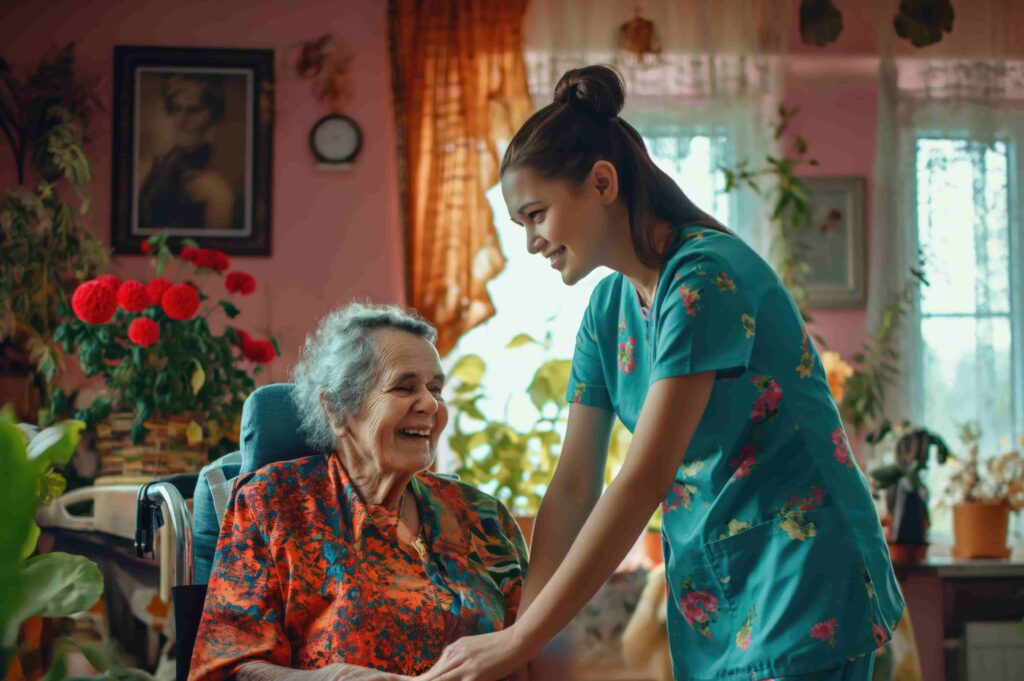
Emergency Preparedness and Crisis Management
Recognizing Crisis Situations
Holocaust survivors may experience unique crisis situations:
Psychological distress can be triggered by current events, medical procedures, or anniversary reactions. Our caregivers learn to recognize these signs and respond with appropriate support.
Medical emergencies require special consideration of trauma history when interacting with emergency responders and hospital staff.
Emergency Response Protocols
We maintain detailed emergency plans that include:
- Contact information for trauma-informed medical professionals
- Hospital preferences and important medical history
- Family notification procedures that respect privacy concerns
- Crisis intervention resources available 24/7
Conclusion
Providing specialized Holocaust survivor home care is both a privilege and a responsibility. These remarkable individuals have shown extraordinary resilience in the face of unimaginable adversity, and they deserve care that honors their experiences while promoting their well-being and dignity.
At All Heart Homecare, we’ve spent over 13 years developing expertise in trauma-informed care because we believe every survivor deserves to live their later years with comfort, respect, and dignity. Our approach to home care for Holocaust survivors combines medical expertise with a deep understanding of trauma effects and cultural sensitivity. In partnership with the JCCGCI, we are able to provide the highest standard of home care services specially tailored for Holocaust survivors, ensuring compassionate support and specialized resources that truly make a difference.
The key to successful Holocaust survivor care lies in:
- Understanding trauma’s lasting effects on physical and mental health
- Building trust through consistency and transparency
- Respecting autonomy while ensuring safety
- Coordinating specialized services that address unique needs
- Supporting families throughout the caregiving journey
For families beginning this journey, remember that you’re not alone. We’re here to provide the specialized, compassionate care that Holocaust survivors deserve through the Holocaust Program, helping you navigate this path with confidence and peace of mind. Together, we can ensure that these extraordinary individuals receive the dignity, respect, and excellent care they’ve always deserved. Contact us today for more information on how we can help.



